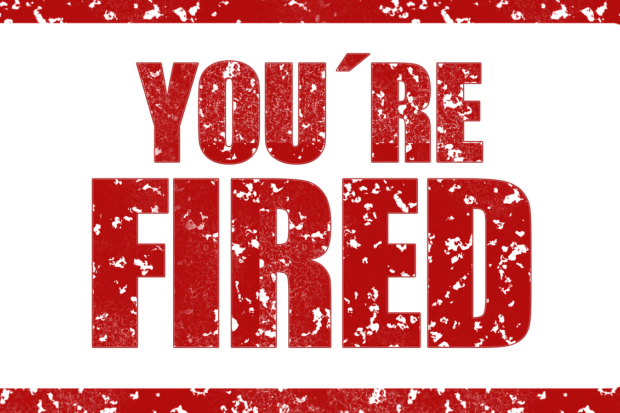Unlawfully Terminated? Here’s What You Need to Know About Your Rights and What to Do Next

Wrongful termination – or being fired illegally – can be tricky. An employer might claim a legal reason to fire you, like chronic tardiness, but if you’re an at-will employee, your employer isn’t legally required to offer any reason at all. According to the National Conference of State Legislatures, employees, with the exception of those in Montana, are presumed to be at-will employees, meaning “an employer can terminate for any reason except an illegal one for any time without incurring legal liability.”
However, if you can prove you were unlawfully terminated, you may be entitled to legal compensation, which is all the more reason to question, collect evidence and seek expert legal advice to protect your rights. Here are a few things to know about your rights and next steps towards finding a resolution:
Thoroughly assess whether the termination actually was unlawful
Even at-will employees have important legal protections, which is why it’s critical to know the scenarios that could be considered unlawful termination. It’s unlawful to fire an employee for any reason that violates public policy. In other words, an employer can’t fire an employee for reporting unsafe conditions in their workplace or fire an employee for insubordination when the employee in question refused to engage in illicit activity at the employer’s command. In addition, if your termination falls into any one of these categories, chances are, your employer could be held liable for firing illegally:
- Termination due to race, disability, gender identity, pregnancy status, sexual orientation, marital status, age, or other protected characteristics
- Taking off time to care for family or due to a medical condition
Taking off time to care for family or due to a medical condition (if pre-approved on FMLA)
- Termination after reporting a violation committed by your employer, also known as whistleblowing
- Submitting a complaint alleging sexual harassment in the workplace
- Taking time off to participate in civic duties, such as voting and participating in jury duty
- Reporting safety issues or not receiving mandatory breaks
- Requesting unpaid wages
Know that if you quit your job because of one of the situations listed above, your case will need to be handled as a “constructive dismissal,” which is when an employee quits because their employer has created a hostile work environment. Most states recognize the legal concept of constructive dismissal and will count these kinds of resignations as dismissals, however, resigning makes it more difficult to pursue legal action.
Build your case
Be diligent about collecting tangible evidence, such as emails, texts, voicemails and instant messages. If you were fired because of performance, save evidence that discredits an employer claim, such as positive reviews, internal awards or recognition. Write down your side of the story soon after termination and document events with date, time and people present who may be able to corroborate mistreatment or other details. Also keep pay stubs and financial records so that you can determine the wages lost due to your wrongful termination. Finally, if fired, you will lose access to your computer soon thereafter, so save evidence quickly and on home devices and harddrives.

Turn to the right agency for help
There are a number of agencies you can turn to for help, including:
- Equal Employment Opportunity Commission (EEOC) can assist with claims relating to discrimination, retaliation or harassment.
- Occupational Safety and Health Administration (OSHA) can help if you think you were wrongfully terminated after complaining about an unsafe work environment.
- Family and Medical Leave Act (FMLA) will assist with scenarios relating to requesting Family or Medical Leave.
More detailed information on when and how to engage with these agencies can be found here.
Seek legal assistance
Many wrongful termination cases aren’t black and white, which is why it might be best to consult a lawyer. If you’re not ready to hire one, you can at least chat with verified legal experts who specialize in employment law either online to learn whether you have enough evidence to file a wrongful termination claim, better understand rules in your state and get an opinion on whether you have a chance at settlement.
As you consider your rights and actions that will help you build a strong case, there are a myriad of resources when it comes to seeking unemployment benefits. With a little bit of research and a lot of perseverance, you can help minimize the stress around losing your job and protecting yourself as you find a resolution. Take a breath, and know there are resources available to help you through this kind of a transition.

###
Author Bio: Dustin Johnson, JustAnswer Employment Law Expert
Dustin Johnson is a licensed attorney based in Missouri who has been a legal expert on JustAnswer since 2020 specializing in employment law, consumer protection and discrimination issues. He has been a practicing attorney since 2016, and brings nearly 20 years combined legal and professional writing experience. Earlier in his career, Dustin clerked for the Maricopa County Superior County Court (in Arizona) and served as an assistant city attorney, handling numerous labor and employment matters. He also served as deputy prosecuting attorney. Dustin earned his law degree from the Phoenix School of law.
*******
Ms. Career Girl strives to provide valuable insights you can use. To see more from our columnists and guest authors, check these out! Or subscribe to our weekly email featuring our latest articles. We’re also present on Medium!

